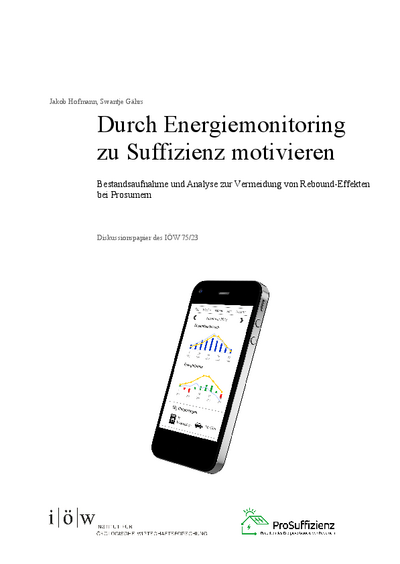Motivating sufficiency through energy monitoring Review and analysis to avoid rebound effects for prosumers
Prosumers have made a positive contribution to the energy transition in Germany by purchasing a photovoltaic system. At the same time, the latest research shows that switching to electricity from one's own roof also entails the risk of increased overall consumption in the household. The aim of this paper is to analyse the basis of information of presuming households as a possible source of this increased energy consumption. It examines the role of energy monitoring providers in promoting energy sufficient behaviour of prosumers with photovoltaic systems.
The main objective is to analyse the impact of these providers on the energy consumption behaviour of customers, especially with regard to the reduction of so-called “rebound effects”. The study includes both app- and web-based offers in private and public demo accesses and available screenshots. The analysis focuses on key aspects of the offers that have a direct influence on behaviour, the perception of consumption or the motivation to save energy. These include, for example, the visualization of key figures, the presentation of monetary or ecological aspects or the options for social comparisons or other nudges. The analysis provides insights into the diversity of energy monitoring systems and identifies areas where user experience and transparency could be improved to promote sufficient strategies and minimize rebound effects. The results of the analysis suggest a particular lack of efficiency or sufficiency narratives in the presentation of information to users. This is due to both the visualization and the type of key figures as the basis of information provided to prosumers.



